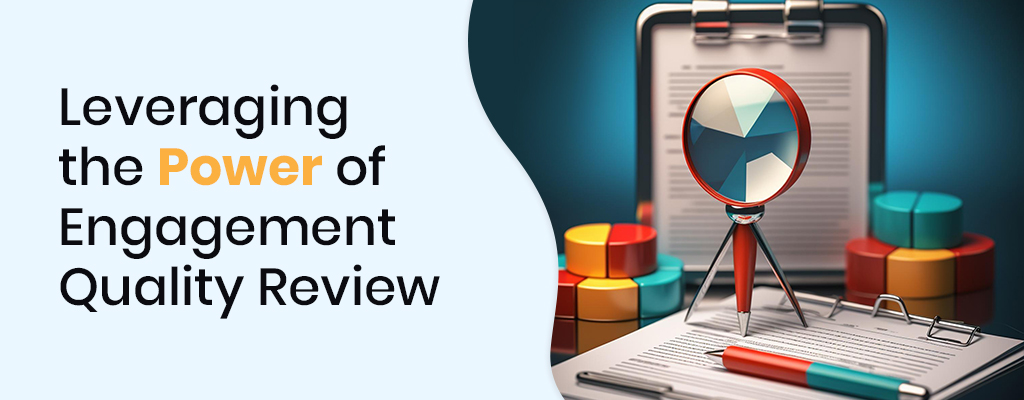Engagement Quality Review: A Comprehensive Guide To SQM-2 Requirements

Introduction
Recent findings from the NFRA which was compiled by Institute of Chartered Accountants of India (ICAI) have brought audit quality control into sharp focus. Analysis of National Financial Reporting Authority (NFRA) orders reveals that approximately 30% of non-compliances relate to two key standards: SA 220 (Quality Control for Audit of Financial Statements) and SA 230 (Audit Documentation). These non-compliances particularly center around the appointment of Engagement Quality Control Reviewer (EQCR), their role in the audit process, and documentation of their work.
Scope and Objective of Engagement Quality Review
The Standard on Quality Management-2 provides comprehensive guidelines regarding Engagement Quality Review and the role of the Engagement Quality Reviewer. Under SA 220, an Engagement Quality Reviewer must be appointed for:
– Listed companies
– High public interest entities (such as banks, insurance companies, and large NBFCs)
– Other companies as prescribed in the firm’s policy based on risk assessment
The primary objective of Engagement Quality Review is to objectively evaluate significant judgements made by the engagement team and the conclusions reached. This evaluation is performed within the context of professional standards and applicable legal and regulatory requirements. Importantly, while the engagement quality reviewer provides an additional layer of quality control, their presence does not diminish the engagement partner’s ultimate responsibility for the audit.
Eligibility and Independence Requirements
The role of engagement quality reviewer carries significant responsibilities and demands specific qualifications. The position can be filled by another partner (other than the engagement partner), an individual with equivalent professional experience, or an external individual in the case of small firms. However, all candidates must be members of the Institute of Chartered Accountants of India.
The effectiveness of an engagement quality reviewer depends heavily on their qualifications and independence. Key requirements include:
Professional Competence
The reviewer must possess:
– Deep knowledge of the entity’s industry
– Experience with similar engagements
– Thorough understanding of professional standards and regulatory requirements
– Sufficient time availability to perform quality reviews effectively
Independence Considerations
Independence is paramount for effective quality review. Several factors can compromise a reviewer’s independence:
– Organizational reporting relationships with the engagement partner
– Influence over remuneration decisions
– Long association with the audit entity
– Previous involvement as engagement partner
In cases where the reviewer was previously the engagement partner, a cooling-off period is typically required before they can serve as quality reviewer for the same client.
Review Process and Communication
The engagement quality review process is dynamic and interactive. The timing and extent of review procedures depend on various factors including the complexity of the engagement, the entity’s nature and size, and specific risk factors all influence the scope of review. For instance, engagements in emerging industries or those involving complex transactions may require more extensive review procedures.
Communication plays a vital role in effective quality review. Regular dialogue between the engagement team and the quality reviewer facilitates:
– Early identification of significant matters
– Thorough discussion of important judgments
– Timely resolution of concerns
– Documentation of conclusions reached
In group audit scenarios, the quality reviewer’s role becomes more complex, requiring coordination with component auditors and consideration of group-wide significant judgments in accordance with SA 600.
Documentation Requirements
Documentation of the engagement quality review should be comprehensive and timely. While various methods can be employed—from electronic documentation to detailed memorandums—the key focus should be on capturing:
- The review process and conclusions
- Significant matters discussed
- Basis for judgments made
- Additional procedures performed based on reviewer recommendations
While documentation can be finalized after the engagement report date, it must be completed before the assembly of the final engagement file. Some firms may require documentation completion before the engagement report date through specific policies.
Conclusion
Effective engagement quality review serves as a crucial element in maintaining audit quality and ensuring compliance with professional standards. Success in this area requires careful attention to reviewer selection, maintaining clear communication channels, and implementing robust documentation practices. As regulatory scrutiny continues to increase, the role of engagement quality review becomes increasingly vital in ensuring audit quality and maintaining public trust.